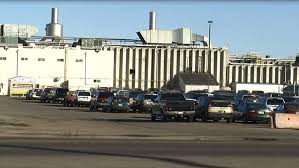
News Channel Nebraska reported last week the State of Nebraska would no longer report COVID-19 exposures from individual meatpacking plants.
Five Nebraska counties with major meatpacking plants – Dakota, Dawson, Colfax, Hall and Saline, ranked in the top 31 of highest per capita exposure to COVID-19, the New York Times reported last Thursday.
Nebraska Governor Pete Ricketts cited confidentiality concerns as the reason for the order. But, Ricketts decision seemed geared towards deflecting widespread criticism of meatpacking houses for their role in spreading COVID-19. Pro Publica reported last week that Ricketts refused a request from public health officials in Grand Island to shut down a JBS Swift plant over COVID-19 concerns.
Workers’ comp. and COVID-19 exposure reporting
But while public official will no longer report COVID-19 exposure by meatpacking house, those plants are still required to report possible COVID-19 exposures to the Nebraska Workers’ Compensation Court. Those so-called First Reports of Injury are public record. But those records may not be accurate for two reasons.
First, many companies like to under-report work injuries. This practice pre-dates the COVID-19 pandemic. Employers under-report work injuries as a a a way to suppress claims. In Nebraska, the penalty for claims suppression is minor.
Secondly, OSHA guidance appears to exempt meatpackers from having to log COVID-19 exposure as an occupational injury. Standards for logging an injury for OSHA and reporting it to the Nebraska Workers’ Compensation Court tend to blur. Because of the guidance from OSHA, I suspect companies will under-report work injuries to state workers’ compensation courts.
Workplace safety and public health
The prevalance of COVID-19 in packinghouse towns has lead the general public to connect public health and workplace safety. The issue of workplace safety will need all the attention and public support it can garner. It appears as if corporate American wants to protect companies for COVID-19 exposure litigation. I believe this immunity could cover workers’ compensation.
A public nuisance suit filed against a Smithfield Foods plant in Missouri highlighted the link between workplace and public health. In the suit, community members sued Smithfield for the role it played in spreading COVID-19 in the area surrounding the plant.
But last week, a federal judge dismissed the case and ruled that any challenges to Smithfield safety practices would have to be filed with OSHA. In a blog post, University of Wyoming Law Professor Michael Duff called the decision a “mood point” indicating a potential “unreflective, anti-liability fervor enveloping the Great Reopening”.
I agree with Professor Duff. The unwillingness of courts to push the envelope for workers’ rights predates the COVID-19 pandemic. State and federal elections are coming up in six months. For once issues like workplace safety may be at the forefront of the discussion during campaign season.

